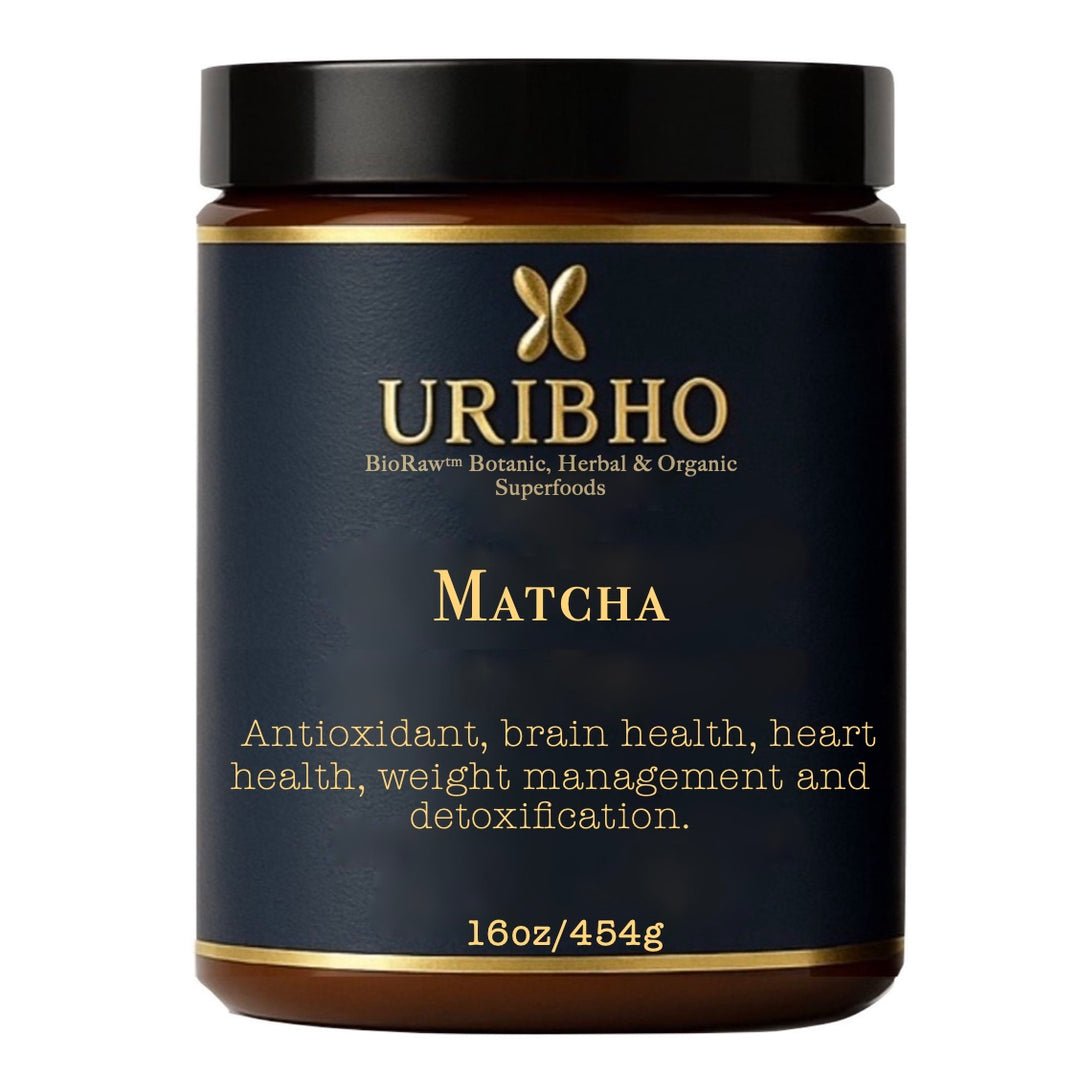
- En stock
- En rupture de stock, expédition prochainement
Matcha BioRaw™️
Matcha
Source
-
Qu'est-ce que c'est ? Le matcha est un type de thé vert en poudre finement moulu.
-
Plante : Dérivé de la plante Camellia sinensis , la même plante utilisée pour tous les thés traditionnels (vert, noir, oolong).
-
Transformation : Les feuilles sont cultivées à l’ombre pendant 3 à 4 semaines avant la récolte, ce qui augmente leur teneur en chlorophylle et en acides aminés. Après la récolte, les tiges et les nervures sont retirées, puis les feuilles sont broyées à la pierre pour obtenir une poudre.
2. Origin
-
Pays d'origine : Le Japon est la source la plus réputée de matcha de haute qualité, en particulier des régions comme Uji (Kyoto), Nishio (Aichi) et Shizuoka .
3. Bienfaits pour la santé
Les bienfaits de la consommation de matcha, étayés par la recherche, comprennent :
| Avantage | Détails |
|---|---|
| Riche en antioxydants | En particulier les catéchines comme l'EGCG (épigallocatéchine gallate) , qui peuvent aider à réduire l'inflammation et à combattre les radicaux libres. |
| Stimule les fonctions cérébrales | Contient de la caféine et de la L-théanine , qui, ensemble, peuvent améliorer la vigilance, la mémoire et la relaxation sans provoquer de nervosité. |
| Soutient la santé cardiaque | Peut réduire le cholestérol LDL et la pression artérielle. |
| Aides à la perte de poids | Augmente le métabolisme et l'oxydation des graisses, surtout en association avec l'exercice physique. |
| Détoxification | Une teneur élevée en chlorophylle peut aider l'organisme à éliminer les métaux lourds et les toxines. |
4. Utilisation recommandée
| Formulaire | Utilisations courantes |
|---|---|
| Qualité culinaire | Pâtisseries, smoothies, lattes, glaces. |
| grade cérémoniel | Idéal pour le thé traditionnel ; fouetté avec de l'eau chaude. |
Dosage journalier (recommandation générale) :
-
1 à 2 cuillères à café (2 à 4 g) par jour pour la plupart des adultes.
-
Commencez par ½ cuillère à café si vous découvrez le matcha, en raison de sa puissance.
Conseil de préparation : Utilisez de l'eau à 70–80°C (160–175°F) pour éviter l'amertume.
5. Mise en garde et sécurité de la FDA
-
Statut FDA : Le matcha est considéré comme généralement reconnu comme sûr (GRAS) lorsqu'il est consommé en quantités alimentaires normales.
-
Préoccupations potentielles :
-
Contamination aux métaux lourds : La consommation de la feuille entière de matcha peut entraîner la présence de plomb ou d’arsenic , surtout si le matcha est cultivé dans un sol contaminé (ce qui est plus fréquent pour les produits non japonais ). Privilégiez le matcha japonais biologique, testé en laboratoire .
-
Sensibilité à la caféine : Contient plus de caféine par gramme que le thé vert ordinaire – peut provoquer de l’anxiété, de l’insomnie ou une augmentation du rythme cardiaque chez les personnes sensibles.
-
Interactions : Peut interagir avec des médicaments (par exemple, les anticoagulants en raison de sa teneur en vitamine K).
-
Grossesse : La consommation doit être limitée pendant la grossesse en raison de la caféine et des contaminants potentiels.
-
Frais et politique d'expédition
| MODE D'EXPÉDITION | FRAIS DE PORT |
|---|---|
|
Standard |
GRATUIT |
|
Exprimer |
Forfait de 10 $ |
Destinations d'expédition
| DESTINATION | PROVINCES/ÉTATS |
|---|---|
|
Canada et États-Unis |
Territoires inclus |
|
Reste du monde |
Des frais d'expédition s'appliquent |
Délai d'expédition par service
| TYPE D'EXPÉDITION | DURÉE |
|---|---|
|
Rural et éloigné |
7 à 10 jours ouvrables |
|
Service standard |
5 à 7 jours ouvrables |
|
Exprimer |
1 à 3 jours ouvrables |
Délai d'expédition des vacances
| REÇU PAR | PASSER COMMANDE AVANT LE |
|---|---|
| Tous les jours fériés | À midi, 4 jours avant |

